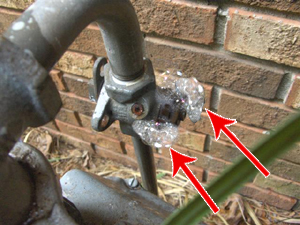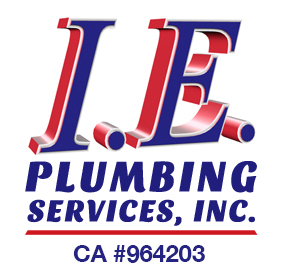
Gas leaks can pose serious risks to your home and health, including the potential for fires, explosions, and carbon monoxide poisoning. Understanding how to prevent, detect, and respond to gas leaks is essential for ensuring the safety of your family and property. In this blog, we’ll cover important aspects of gas leak safety and what you need to know to protect yourself and your loved ones. For professional gas leak detection and repair services in Southern California, IE Plumbing is your reliable partner.
-
Preventing Gas Leaks
- Regular Inspections: Schedule annual inspections of your gas appliances and connections by a qualified technician to ensure they are in good condition. The American Gas Association provides guidelines for gas appliance maintenance.
- Proper Installation: Ensure all gas appliances are installed according to the manufacturer’s instructions and local building codes.
- Maintenance: Keep gas appliances clean and well-maintained. Regularly check for signs of wear and tear.
- Awareness: Educate your household about gas safety, including how to recognize the smell of gas and what to do in case of a leak.
-
Recognizing the Signs of a Gas Leak
- Smell: Natural gas has a distinctive sulfur-like odor, similar to rotten eggs, added to it for easy detection.
- Sound: A hissing or whistling sound near a gas line or appliance may indicate a leak.
- Sight: Look for visible signs such as a damaged connection to a gas line or dead vegetation near a gas line.
- Physical Symptoms: Exposure to gas can cause symptoms such as dizziness, nausea, and headaches. If you suspect a gas leak, leave the area immediately and seek fresh air.
-
Responding to a Gas Leak
- Evacuate: If you suspect a gas leak, evacuate the premises immediately. Do not use electrical switches, appliances, or anything that could create a spark.
- Shut Off the Gas: If it’s safe to do so, shut off the gas supply at the meter.
- Call for Help: Once you’re in a safe location, call your gas company’s emergency hotline and the fire department to report the leak.
- Do Not Re-enter: Do not return to the building until it has been declared safe by the authorities.
-
Carbon Monoxide Safety
Carbon monoxide (CO) is a colorless, odorless gas that can be deadly. Gas leaks can lead to CO buildup, so it’s important to take precautions:
- Install CO Detectors: Place carbon monoxide detectors on every level of your home and near sleeping areas. Test them regularly and replace batteries as needed.
- Ensure Ventilation: Make sure all gas appliances are properly vented to the outside to prevent CO buildup.
- Recognize Symptoms: Be aware of the symptoms of CO poisoning, which include headache, dizziness, weakness, and nausea. If you suspect CO exposure, get to fresh air immediately and seek medical attention. The Centers for Disease Control and Prevention (CDC) provides guidelines for preventing CO poisoning.
-
Professional Assistance
For any concerns related to gas leaks, installations, or maintenance, it’s crucial to seek professional assistance. A qualified plumber or gas technician can provide expert services to ensure the safety and efficiency of your gas system. Regular professional inspections can help prevent gas or other types of leaks and ensure that any issues are promptly addressed.
IE Plumbing: Your Gas Leak Safety Experts in Southern California
Gas leak safety is a critical aspect of home maintenance and emergency preparedness. By taking preventive measures, recognizing the signs of a gas leak, and knowing how to respond, you can protect yourself, your family, and your property from potential dangers. For expert gas leak detection and repair services in Southern California, trust IE Plumbing. Our experienced team is dedicated to ensuring the safety and integrity of your gas system, providing professional service and peace of mind.

 951-375-9599
951-375-9599